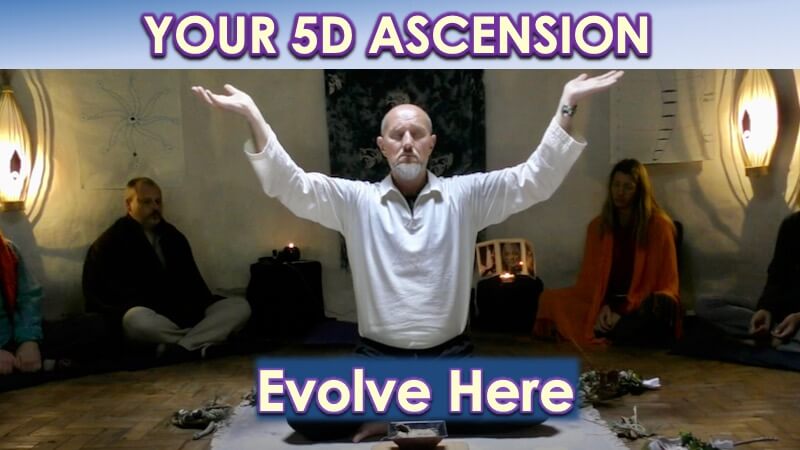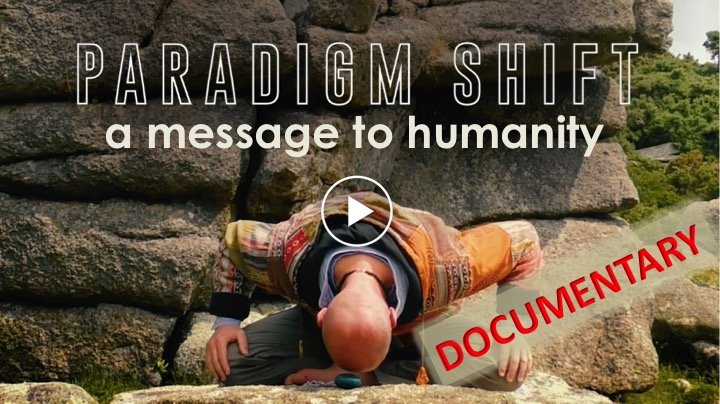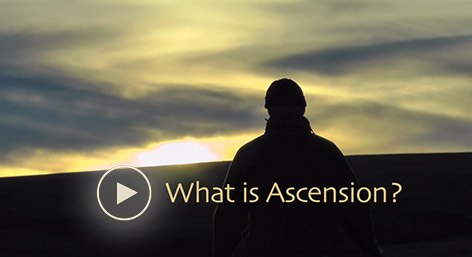Inspiring books
There is a lot about music here and also movies and videos, but not so much about books, so here is the place for sharing your favorite books, quotes, lessons or impressions. Someone once said that book is the most important invention of humanity, I think there is some truth in this, it's kind of most deep and intimate experience for the author and reader.
One of my favorite writers is definitely Carlos Castaneda, his books are literally bigger than life, thousands of years of accumulated knowledge. But two women from his group also wrote about their experience, probably best books I ever read:
Taisha Abelar - The Sorcerers' Crossing
Florinda Donner - Being in Dreaming
Very intense and powerful, and there is something extraordinary beautiful, feels like a sense of freedom, like bright sunshine at the end of the dark tunnel. I guess its because they didn't write from ordinary state of consciousness, which is our prison. Here is just one of many pearls:
Esperanza sat up straight and gave me a wink as if to emphasize that Nelida was about to reveal a major secret.
Nelida said, "When dreaming-awake we have access to direct knowledge."
I could see the disappointment in her eyes as she regarded me for a long moment.
Nelida snapped impatiently, "Do not be so dense!
"Dreaming-awake should have made you realize that you have, as all women do, a unique capacity to receive knowledge directly."
Esperanza made a silencing gesture with her hand and said, "Did you know that one of the basic differences between males and females is how they approach knowledge?"
I had no idea what she meant.
Slowly and deliberately, she tore off a clean sheet from my notepad and drew two human figures.
One head she 'crowned' with a cone and said that it was a man. On the other head, she drew the same cone, but upside down, and said that it was a woman.
Esperanza, with her pencil poised on the figure crowned with a cone, explained, "Men build knowledge step by step."
"Men reach up. They climb toward knowledge. Sorcerers say that men cone toward the spirit. They cone up toward knowledge. This coning process limits men on how far they can reach."
She retraced the cone on the first figure. "As you can see, men can only reach a certain height. Their path toward knowledge ends up in a narrow point seen here as the tip of the cone."
She looked at me sharply. "Pay attention," she warned me and pointed her pencil to the second figure with the inverted cone on its head.
"As you can see, the cone is upside down, and open like a funnel. Women are able to open themselves directly to the source. Or rather, the source reaches them directly at the broad base of the cone.
"Sorcerers say that women's connection to knowledge is expansive. On the other hand, men's connection is quite restricted.
She proceeded, "Men are close to the concrete, and aim at the abstract.
"Women are close to the abstract, and yet try to indulge themselves with the concrete."
I interrupted her, "Why are women, being so open to knowledge, or the abstract, considered inferior?"
Esperanza gazed at me with rapt fascination.
She rose swiftly, stretched like a cat until all her joints cracked, then sat down again.
She explained, "That women are considered inferior, or, at the very best, that female traits are equated as complementary to the male's has to do with the manner in which males and females approach knowledge.
"Generally speaking, women are more interested in power over themselves than over others.
"Power over others is clearly what males want."
Nelida interjected, "Even among sorcerers."
The women all laughed.
Esperanza went on to say that she believed that originally women saw no need to exploit their facility to link themselves broadly and directly to the spirit.
She said women saw no necessity to talk about or to intellectualize this natural capacity of theirs because it was enough for them to put their natural capacity into action, and to know that they had it.
Esperanza stressed, "Men's incapacity to link themselves directly to the spirit was what drove them to talk about the process of reaching knowledge. And they have not stopped talking about it.
"And it is precisely this insistence on knowing how they strive toward the spirit, and this insistence on analyzing the process that gave them the certainty that being rational is a typically male skill."
Esperanza explained that the conceptualization of reason has been done exclusively by men, and that this has allowed men to belittle women's gifts and accomplishments.
And even worse, it has allowed men to exclude feminine traits from the formulation of the ideals of reason.
She emphasized, "So by now, of course, women believe what has been defined for them.
"Women have been reared to believe that only men can be rational and coherent.
"Now men carry with them a load of unearned assets that makes them automatically superior regardless of their preparation or capacity."
I asked, "How did women lose their direct link to knowledge?"
Esperanza corrected me, "Women have not lost their connection. Women still have a direct link with the spirit.
"They have only forgotten how to use it. Or rather, they have copied men's condition of not having it at all.
"For thousands of years, men have struggled to make sure that women forget it.
"Take the Holy Inquisition, for example. That was a systematic purge to eradicate the belief that women have a direct link to the spirit.
"All organized religion is nothing but a very successful maneuver to put women in a lower place. Religions invoke a divine law that says that women are inferior."
I stared at her in amazement, wondering to myself how she could possibly be so erudite.
Esperanza went on, "Men's need to dominate others and women's lack of interest in expressing or formulating what they know and how they know it has been a most nefarious alliance."
"It has made it possible for women to be coerced from the moment they are born into accepting that fulfillment lies in homemaking, in love, in marriage, in having children, and in self-denial.
"Women have been excluded from the dominant forms of abstract thought and educated into dependence.
"Women have been so thoroughly trained in the belief that men must think for them that women have finally given up thinking."
I interrupted her, "Women are quite capable of thinking."
Esperanza corrected me, "Women are capable of formulating what they have learned, but what they have learned has been defined by men.
"Men define the very nature of knowledge, and from that knowledge they have excluded that which pertains to the feminine. Or if the feminine is included, it is always in a negative light.
"And women have accepted this."
I interjected, "You are years behind the times. Nowadays women can do anything they set their hearts to do. They pretty much have access to all the centers of learning, and to almost anything men can do."
Esperanza argued, "But this is meaningless as long as women do not have a support system and a support base.
"What good is it that women have access to what men have when women are still considered inferior beings who have to adopt male attitudes and behaviors in order to succeed?
"The truly successful women are the perfect converts. They too look down on women.
"According to men, the womb limits women both mentally and physically.
"This is the reason why women, although they have access to knowledge, have not been allowed to help determine what this knowledge is.
Esperanza proposed, "Take, for instance, philosophers. The pure thinkers.
"Some of them are viciously against women.
"Others are more subtle in that they are willing to admit that women might be as capable as men were it not for the fact that women are not interested in rational pursuits.
"And if women are interested in rational pursuits they should not be because it is more becoming for a woman to be true to her nature as a nurturing and dependent companion of the male."
Esperanza expressed all this with unquestionable authority.
Within moments, however, I was assailed by doubts. I asked, "If knowledge is but a male construct, then why your insistence that I go to school."
Esperanza replied, "Because you are a witch, and as such you need to know what impinges on you and how it impinges on you."
"Before you refuse something, you must understand why you refuse it.
"You see, the problem is that knowledge in our day is derived purely from reasoning things out.
"But women have a different track that is never, ever, taken into consideration.
"That track can contribute to knowledge, but it would have to be a contribution that has nothing to do with reasoning things out."
I asked, "What would it deal with, then?"
Esperanza replied, "That is for you to decide after you master the tools of reasoning and understanding."
I was very confused.
Esperanza explained, "What sorcerers propose is that men can not have the exclusive right to reason.
"Men seem to have it now simply because the ground where men apply reason is a ground where maleness prevails.
"Let us, then, apply reason to a ground where femaleness prevails. And that ground is, naturally, the inverted cone I described to you, a women's connection with the spirit itself."
She tilted her head slightly to one side as if considering what to say.
She said, "That connection has to be faced with a different aspect of reasoning-- an aspect never, ever used before-- the feminine side of reasoning."
I asked, "What is the feminine side of reason, Esperanza?"
She answered, "Many things. One of them is definitely dreaming."
She regarded me questioningly, but I had nothing to say.
Her deep chuckle caught me by surprise. She said, "I know what you expect from sorcerers.
"You want rituals and incantations. Odd, mysterious cults. You want to sing. You want to be one with nature. You want to commune with water spirits. You want paganism. Some romantic view of what sorcerers do. Very Germanic.
She went on, "To jump into the unknown you need guts and mind. Only with them both will you be able to explain to yourself and to others the treasures you might find."
She leaned toward me, eager, it seemed, to confide something.
She scratched her head and sneezed repeatedly, five times as the caretaker had. She said, "You need to act on your magical side."
I asked, "And what is that?"
Esperanze answered, "The womb."
She said this so distantly and calmly, and as if she were not interested in my reaction, that I almost missed hearing it.
Then suddenly I realized the absurdity of her remark, and I straightened up and looked at the others.
Esperanza repeated, "The womb! The womb is the ultimate feminine organ.
"It is the womb that gives women that extra edge and the extra force to channel their energy."
She explained that men, in their quest for supremacy, have succeeded in reducing woman's mysterious power, her womb, to a strictly biological organ whose only function is to reproduce; to carry man's seed.
As if obeying a cue, Nelida rose, walked around the table, and came to stand behind me. "Do you know the story of the Annunciation?" she whispered in my ear.
Giggling, I turned to face her and said, "No. I do not."
In that same confidential whisper, Nelida proceeded to tell me that in the Judeo-Christian tradition, men are the only ones who hear the voice of God.
Women have been excluded from that privilege, with the exception of the Virgin Mary.
Nelida said that an angel whispering to Mary was, of course, natural.
But what was not natural was the fact that all the angel had to say to Mary was that she would bear the son of God.
The womb did not receive knowledge but rather the promise of God's seed.
A male god, who engendered another male god in turn.
I wanted to think and to reflect on all that I had heard, but my mind was in a confused whirl.
I asked, "What about male sorcerers? They do not have a womb, yet they are clearly connected to the spirit."
Esperanza regarded me with undisguised pleasure, then looked over her shoulder, as though she were afraid to be overheard, and whispered, "Sorcerers are able to align themselves to intent and to the spirit because they have given up what specifically defines their masculinity, and they are no longer males."
- Add new comment
- 223 views
Comments
Shape Power
Comment
Looked around for an appropriate thread and found this, even though it is fairly empty.
Through some queries this morning that 'came out of nowhere' I found this which intrigues me because it fits well with my quest to understand sacred geometry. I am currently halfway through and encourage all to read at least the chapters with names that speak to you.
https://ia802809.us.archive.org/13/items/ShapePowerByDanA.DavidsonbOk.x…
What's happened, happened
Comment
I saw no solution except to confess to Clara what was on my mind.
I told her what bothered me the most was that I seemed to have reached a standstill in my recapitulation.
"What is causing it?" Clara asked.
I admitted that it had to do with my family. "I know now without a doubt that they dislike me," I said sadly:
"Not that I didn't suspect it all along, because I did; and I used to get into rages about it.
"But, now that I have reviewed my past, I can't get angry the way I used to, so, I don't know what to do."
Clara eyed me critically, moving her head backward to size me up.
"What is there to do?" she asked. "You've done the work and found out that they disliked you.
"That's good! I don't see the problem."
Her cavalier tone annoyed me.
I expected if not sympathy, at least understanding and an intelligent comment.
"The problem," I said emphatically, on the verge of tears, "is that I'm stuck.
"I know that I need to go deeper than I have, but I can't.
"All I can think is that they disliked me, whereas I loved them."
"Walt, wait. Didn't you tell me that you hated them? I distinctly remember..."
"Yes, I did say that, but at the time I said it I didn't know what I was saying.
"I really loved them; my brothers too. Later I learned to despise them, but that was much later. Not as a child. As a child I wanted them to pay attention to me and play with me."
"I think I see what you mean," Clara said, nodding. "Let's sit down and discuss this."
We sat down again on the log.
"As I see it, your problem stems from a promise you made as a child.
"You did make a promise as a child, didn't you, Taisha?" she asked, looking at me squarely in the eye.
"I don't recall making any promises," I said sincerely.
In a friendly tone, Clara suggested that perhaps I didn't recall because I had been very young when I made it, or because it was more of a feeling than a promise actually stated in so many words.
Clara explained that as children, we often make vows and then become bound by those vows even though we can no longer remember making them.
"Such impulsive pledges can cost us our freedom," Clara said:
"Sometimes we are bound by preposterous childish devotion, or pledges of undying, eternal love."
She said that there are moments in everyone's life, especially in early childhood, when we have wanted something so badly that we automatically fixed our total intent on it, which, once fixed, remains in place until we fulfill our desire.
She elaborated by saying that vows, oaths and promises bind our intent; so that from then on, our actions, feelings and thoughts are consistently directed toward fulfilling or maintaining those commitments regardless of whether or not we remember having made them.
She advised me to review, during the recapitulation, all the promises I had ever made in my lifetime, especially the ones made in haste or ignorance or faulty judgement.
Unless I deliberately retrieved my intent from those promises, she advised, intent would never rise freely to be expressed in the present.^
I tried to think about what she was saying, but my mind was a mass of confusion.
Suddenly I remembered a scene from my very early childhood.
I must have been six.
I wanted to be cuddled by my mother but she pushed me away, saying that I was too old for cuddling, and told me to go clean up my room.
Yet the youngest of my brothers, who was four years older than I and was my mother's favorite, was always cuddled by her.
I swore then that I would never love or get close to any of them ever again.
From that day on, I seemed to have kept my promise by always remaining estranged from them.
"If it's true that they didn't love you," Clara said, "it was your fate not to be loved by your family.
"Accept it! Besides, what possible difference could it make now whether they loved you or not?"
It still made a difference, but I didn't tell Clara that.
Clara went on, "I too had a problem very much like yours.
"I had always been aware of being a friendless, fat, miserable girl.
"But through recapitulating I found out that my mother had deliberately fattened me up since the day I was born.
She reasoned that a fat, homely girl would never leave home; and she wanted me there as her servant for life."
I was horrified. This was the first time Clara had revealed anything about her past to me.
"I went to my teacher, who was definitely the greatest teacher one can ever have, for advice about this problem," she went on:
"He said to me, 'Clara, I feel for you, but you are wasting your time because then was then: now is now.
"Now there is only time for freedom.
"You see, I sincerely felt that my mother had ruined me for life: I was fat and couldn't stop eating.
"It took me a long time to get the meaning of 'Then was then: now is now.'
"And now there is only time for freedom."
Clara was silent for a moment as if to let the impact of her words settle on me.
"You have only time to fight for freedom, Taisha," she said, giving me a nudge. "Now is now."
The Alchemist - full audio book
Comment
It's a nice idea Danniel - our favourite books ![]()
I just happened to come across this complete audio book of the Alchemist, which is one of my favourites...
Favorite books - new thread
Comment
Probably everyone here loves a good book so I started a new thread, feel free to share which books are most significant on your path.
Since I can't without music, here's a song from one very special book.
Le Petit Prince
In reply to Favorite books - new thread by Danniel
Comment
So what makes The Little Prince so special?
It certainty wakes and shakes your inner child, and it goes really deep, can't remember any other book so powerful.
Someone said you should read this book every ten years or so, it has many layers that opens for you as your understanding increasing.
There is an interesting story behind The Little Prince, it's based on real events. Author did have a plane crash in Sahara desert and since pilots are very good in calculation he knew that his chances for survival are practically zero, only miracle could save him. And as they say, death is the best teacher, it takes everything unimportant away from you. So, the miracle did happen and Little Prince did came to show us what is really important.







 Check Latest EVENTS 2026
Check Latest EVENTS 2026 Openhand 5D Ascension Program
Openhand 5D Ascension Program Transform Your Consciousness, uplift your life, enter Golden Age.
Transform Your Consciousness, uplift your life, enter Golden Age.

 Break through Your Tightness
Break through Your Tightness


Add new comment